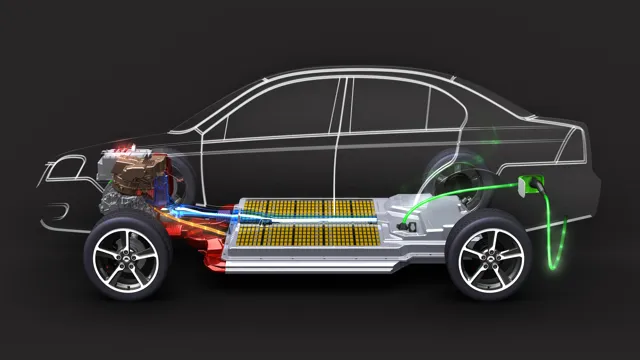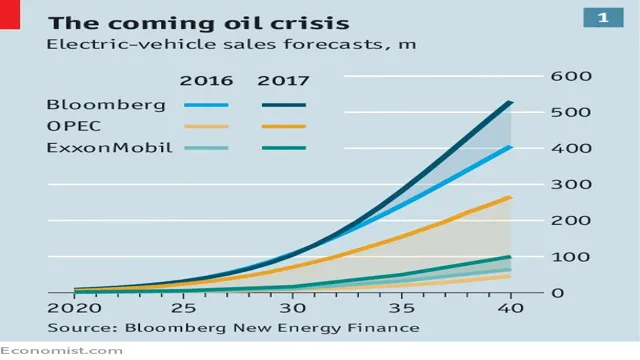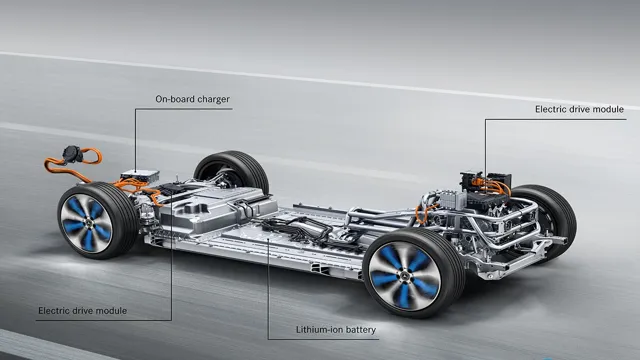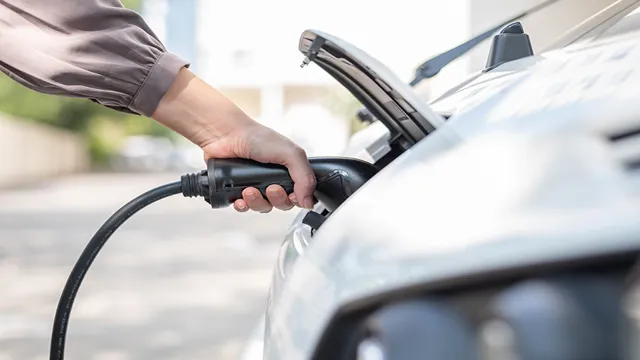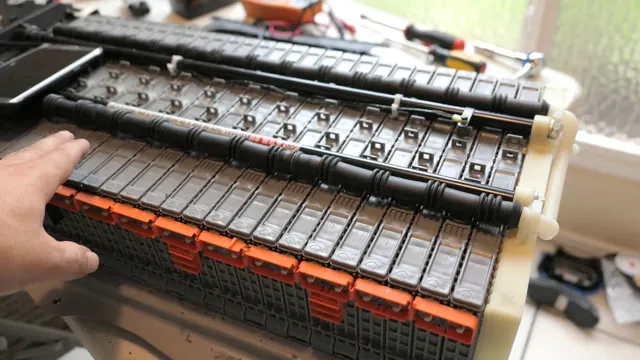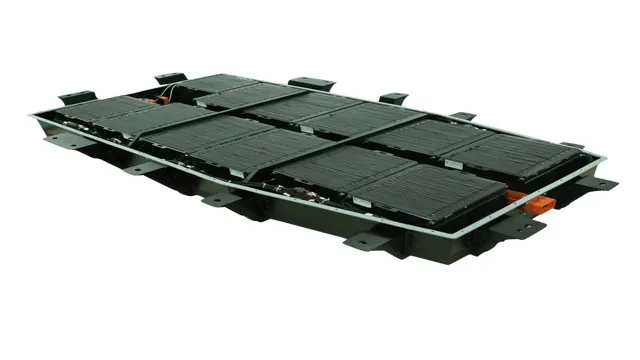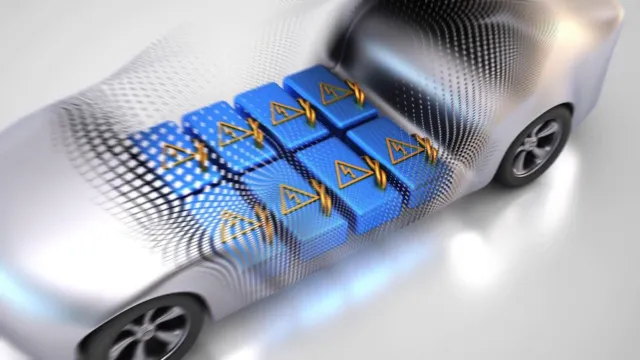Power Up Your Kids’ Electric Cars: Best Batteries for Endless Fun!
If you’re a parent, you know how important it is to keep your children entertained. And what better way to do that than by buying them a ride-on toy? These battery-powered vehicles provide endless fun and excitement for kids of all ages. However, to ensure that your child’s ride is always ready for action, you need to power it up with the right batteries.
Choosing the right batteries can make all the difference in how long your child’s ride-on toy will last before needing a recharge. With so many types of batteries available on the market today, it can be overwhelming to know which one to choose. Should you opt for lead-acid batteries or lithium-ion ones? In this blog post, we’ll explore the different types of batteries that are best suited for your child’s ride-on toys.
We’ll provide you with all the information you need to know about battery life, charging time, and other essential features that will help you make an informed decision. So, get ready to power up your kid’s ride and watch them experience the thrill of outdoor playtime like never before!
Why batteries matter in electric kids’ cars
Batteries for electric kids’ toy cars play a crucial role in the design and performance of these innovative toys. They power the motor and provide the energy needed for your little ones to enjoy their adventures. But, the type of battery used can significantly impact how long the toy operates and the power it generates.
Lithium-ion batteries are a popular choice due to their long lifespan and high energy density. Additionally, parents should consider the charging time and voltage output of the battery to ensure safety and longevity. The batteries that come with the toy car are usually enough to power the vehicle for a reasonable amount of playtime, but parents who want extended playtime may opt to purchase additional batteries.
Ultimately, investing in a high-quality battery for your kid’s electric car will ensure continuous excitement, fun, and safe playtime.
Longer playtime with high-capacity batteries
When it comes to electric kids’ cars, one of the most important factors to consider is the battery capacity. After all, what fun is a car that can only run for a few minutes before needing a recharge? That’s why high-capacity batteries are crucial for ensuring longer playtime and more enjoyment for kids. These batteries allow for extended driving time, providing kids with the opportunity to really explore and get the most out of their ride-on vehicle.
Plus, they can save parents the hassle of constantly having to stop mid-play session to recharge the battery. When shopping for an electric kids’ car, be sure to pay close attention to the battery capacity and choose one with a high-capacity battery for maximum playtime.
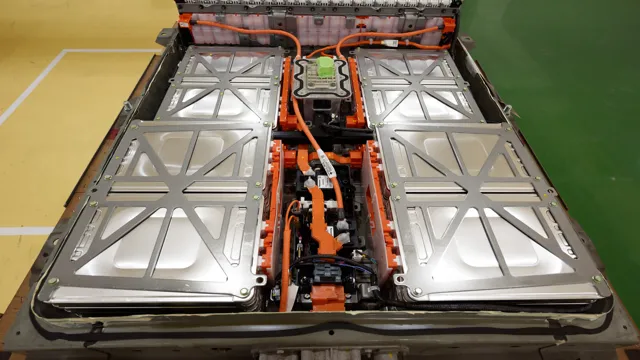
Safety and reliability with quality batteries
Electric kids’ cars are becoming increasingly popular and as parents, we always want to ensure the safety and reliability of our children’s toys. That’s why batteries matter in electric kids’ cars. Quality batteries can make all the difference in the performance and safety of the car.
Choosing a high-quality battery not only provides longer playtime, but it can also prevent the risk of overheating or even explosions. Li-ion batteries are generally considered the best for electric kids’ cars as they are lightweight, powerful, and have a longer lifespan. It’s important to take the time to research and invest in a quality battery to ensure that your child’s electric car is not only fun but also safe for them to enjoy.
Don’t compromise on the quality of the battery and always choose one that is reliable and durable. After all, the safety of your child is priceless.
Types of batteries for electric kids’ cars
When it comes to choosing batteries for electric kids’ cars, there are a few different options available. One popular choice is lead-acid batteries, which are known for being reliable and long-lasting. They are also generally less expensive than other types of batteries, making them a budget-friendly option.
However, they do require regular maintenance and can be quite heavy, which can affect the overall speed and performance of the car. Lithium-ion batteries, on the other hand, are lighter and more powerful, making them a great choice for high-performance electric cars. They also have a longer lifespan and require less maintenance than lead-acid batteries.
However, they can be pricier and may not be necessary for younger children’s cars. Ultimately, the type of battery you choose will depend on your specific needs and budget. It’s always important to prioritize safety, ensuring that the battery you choose is compatible with your car and can provide sufficient power for a safe and enjoyable ride.
Lead-acid batteries: affordable but heavy and short-lived
When it comes to electric kids’ cars, one important component to consider is the battery. There are several types of batteries available, each with its own pros and cons. Lead-acid batteries are one of the most affordable options, but they do come with some drawbacks.
One of the biggest downsides is that they are quite heavy, which can impact the overall performance of the car. Additionally, lead-acid batteries tend to have a relatively short lifespan compared to other battery types. This means that they may need to be replaced more frequently, which can be inconvenient and costly.
Despite these drawbacks, lead-acid batteries remain a popular choice for many electric kids’ cars, especially those that are designed for younger children who may not be as concerned with top speed or long battery life. Whether you choose lead-acid or another type of battery, it’s important to do your research and consider both performance and cost when making your choice.
Lithium-ion batteries: lightweight, expensive, and longer-lasting
When it comes to powering electric kids’ cars, there are a few different options for batteries. One of the most popular types of battery is the lithium-ion battery. These batteries are lightweight and long-lasting, making them a great choice for kids’ cars.
However, they can also be quite expensive, which may be a downside for some parents. Other options for electric kids’ cars include lead-acid batteries and nickel-metal hydride batteries. Lead-acid batteries are heavier and less expensive than lithium-ion batteries, but they may not last as long.
Nickel-metal hydride batteries are a bit more expensive than lead-acid batteries, but they are also lighter and longer-lasting. Ultimately, the type of battery you choose for your electric kids’ car will depend on your budget and your priorities. If you’re looking for a lightweight, long-lasting option and are willing to spend a bit more money, a lithium-ion battery may be the best choice.
If you’re more concerned about affordability and don’t mind a heavier battery, a lead-acid battery may be a good option. And if you want a balance between cost and performance, a nickel-metal hydride battery may be the best choice for your electric kids’ car.
NiMH batteries: a balance of cost and performance
When it comes to electric kids’ cars, the type of battery used is an important factor to consider. There are several options available, but the most common are lead-acid, lithium-ion, and NiMH batteries. While lead-acid batteries are the most affordable option and lithium-ion batteries offer the highest performance, NiMH batteries provide a balance of both cost and performance.
They are less expensive than lithium-ion batteries and can still provide a decent runtime and power output for kids’ cars. Additionally, NiMH batteries have a longer lifespan compared to lead-acid batteries and are more environmentally friendly. Ultimately, the choice of battery will depend on personal preferences and budget, but for those looking for an economical option with decent performance, NiMH batteries are definitely worth considering.
Choosing the right battery for your kid’s car
When it comes to choosing the right battery for your kid’s electric car, there are a few things you should keep in mind. First and foremost, make sure to check the car’s specifications and recommended battery type. This can be found in the car manual or online.
Additionally, consider the battery capacity and voltage. A higher voltage means faster speed, but also shorter battery life. It’s important to find the right balance for your child’s safety and enjoyment.
Finally, don’t forget to consider the age and weight of your child. Younger children may not be able to handle the weight of a heavier battery, so opting for a lighter one is crucial. Overall, taking the time to research and choose the right battery will ensure a seamless and safe experience for your child’s electric car adventure.
Consider the car’s voltage and capacity
When it comes to choosing the right battery for your kid’s car, there are two key factors you need to consider: voltage and capacity. Voltage refers to the power of the battery, while capacity refers to how much energy it can store. It’s important to choose a battery with the right voltage for your car, as this will ensure that it runs smoothly and efficiently.
A battery with too high or too low voltage could cause problems, such as the car not starting or running sluggishly. In terms of capacity, it’s important to choose a battery that can provide enough power for your kid’s car without running out too quickly. To determine the right capacity, consider the age and weight of your child, as well as the terrain where the car will be used.
By taking both voltage and capacity into account, you can choose a battery that will provide reliable and safe power for your kid’s car.
Check the battery’s dimensions and compatibility
When it comes to choosing the right battery for your kid’s car toy, there are a few things to keep in mind. One important consideration is the battery’s dimensions and compatibility. Be sure to check the measurements and specifications of the existing battery before purchasing a replacement, as some vehicles may require a specific size or type of battery.
Additionally, make sure that the battery is compatible with the toy car’s charging system to avoid any potential damage or malfunctions. It’s always best to choose a high-quality and reliable battery that will provide your child with hours of uninterrupted fun. Overall, taking the time to carefully select the right battery will not only ensure your child’s safety but also improve their overall playtime experience.
So, whether you’re replacing an old, worn-out battery or upgrading to a more powerful one, be sure to choose wisely!
Get the best batteries for maximum fun
If you want to give your kids the most exciting and fun-filled experience with their electric cars, it’s essential to invest in high-quality batteries. Batteries for electric kids’ cars are the heart of these vehicles, providing the power needed to drive them around and enjoy the ride. While it can be tempting to settle for the cheapest options on the market, it’s crucial to prioritize quality when choosing batteries.
Cheap ones might cost less upfront, but they’ll wear out quickly and require frequent replacements, which ends up costing you way more in the long run. Choose a long-lasting battery that offers a high level of performance, ensuring your little ones can enjoy driving their car for hours on end without worrying about the battery running out of power. So invest in quality batteries, and watch your kids experience the true thrill of driving their electric cars.
Conclusion
So, there you have it – batteries are the fuel that powers the electric kids cars, just like coffee is the fuel that powers us! But unlike coffee, batteries don’t cause jitters or crashes – just pure, smooth energy to keep those little cars zooming along. So let’s give a round of applause for the unsung heroes of the electric kids car world – batteries! Without them, our kids would be stuck pedaling the old-fashioned way. And nobody wants that.
“
FAQs
What types of batteries are compatible with electric kids’ cars?
The most common batteries for electric kids’ cars are lead-acid and lithium-ion batteries.
How long do the batteries in electric kids’ cars last?
The lifespan of the batteries in electric kids’ cars depends on the type and quality of the battery. Lead-acid batteries typically last 2-3 years, while lithium-ion batteries can last up to 5 years.
Can I use regular car batteries in my child’s electric car?
It is not recommended to use regular car batteries in electric kids’ cars as they may not be the right voltage or amperage for the car and could cause damage.
How long does it take to charge the batteries in an electric kids’ car?
Charging times vary depending on the size and type of battery. On average, it takes 8-12 hours to fully charge the batteries in an electric kids’ car.
